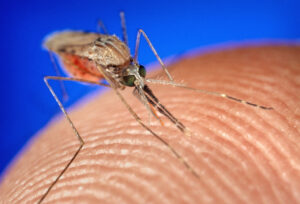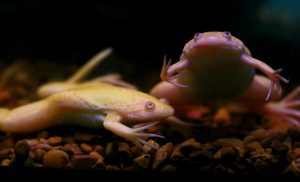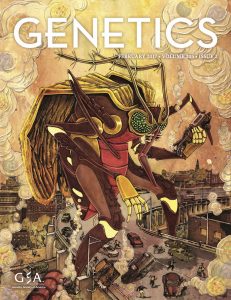Enter your address to receive notifications about new posts to your email.
Articles tagged CRISPR
(21 results)
-
A microbiologist’s quest to understand CRISPR in bacterial self-defense
2024 Genetics Society of America Medal recipient Luciano Marraffini determined how CRISPR-Cas systems destroy genetic targets with precision, paving the way for gene editing technology development.
-
Science & Publishing
New associate editor joins GENETICS
A new associate editor is joining GENETICS. We’re excited to welcome Bo Zhang to the editorial team. Bo ZhangAssociate Editor Bo Zhang is a Professor in Developmental Biology and Genetics at Peking University in China. She received her BS and PhD degrees in Cell Biology from Peking University in 1989 and 1995, respectively, and pursued…
-
Gene-drive strain of African malaria mosquito holds up against mutations
When female Anopheles mosquitoes take a blood meal from someone with malaria, a tiny Plasmodium parasite enters the mosquito’s digestive tract. That parasite can invade the mosquito’s salivary tissues, so when the insect takes another blood meal, the intruder can slip into the next human host and start a new malaria infection. Malaria is a…
-
2021 Novitski Prize: Feng Zhang
Sydney Brenner famously noted that progress in genetics “depends on the interplay between new techniques, new discoveries, and new ideas, probably in that order of decreasing importance.” In the 40 years since those words were recorded, new techniques have propelled the field of molecular biology to heights barely imagined at its inception. This year’s recipient…
-
Nested CRISPR for cloning-free fluorescent tags
A better way to make endogenous reporters in C. elegans CRISPR systems for gene editing have revolutionized biological research, but the method still has limitations. While it is usually straightforward to delete parts of the genome using CRISPR, large insertions can be a challenge. This has been the case even for the nematode Caenorhabditis elegans,…
-
A CRISPR shortcut for switching yeast mating types
Wild yeast aren’t picky about their mates. For Saccharomyces cerevisiae, setting the mood is as simple as providing an abundant supply of nutrients, which prompts each yeast cell to search for another of the opposite mating type. If a lonesome yeast cell can’t find a suitable partner, it’s no problem—it can alternate between mating types,…
-
Using CRISPR for tissue-specific gene knockouts in Xenopus
Why study human diseases in frogs? For starters, 79% of genes implicated in human disease have orthologs in the African clawed frog Xenopus laevis. Frogs also produce hundreds of embryos that can be grown in a dish, meaning they can be manipulated in ways that are impractical on a large scale in mammals. For example,…
-
Missing kidney mutation found
It’s surprisingly common for babies to be born missing one or both kidneys; an estimated one in one thousand babies are born with a single kidney. Called renal agenesis, this condition is fatal if both kidneys are missing, and having just one can also lead to serious health problems like hypertension and early renal failure.…
-
Behind the cover: CRISPR in color
In the life of a butterfly, color is crucial. Color helps these flashy insects attract mates, avoid being spotted, or even signal to predators that they would make a bad meal. On the cover of the March issue of GENETICS is a close-up view of Junonia coenia, a butterfly with stunning blue eyespots on its…
-
Behind the Cover: Attack of the 50 Foot Mosquito
When geneticist Rob Unckless took his son to Lego Club at the local library, he was not expecting to start a new collaboration. The result is the striking piece of science-inspired art that graces the cover of the February issue of GENETICS. Created by artist Kent Smith, “Attack of the 50 Foot Mosquito” was inspired…
-
Can gene drives survive in the wild?
Efforts to engineer genomes in wild populations have huge potential for good—but the real world is more complicated than the lab. Until now, humans have never been able to seriously consider how to cheat evolution. But now that the CRISPR/Cas9 system has made genome editing easy and efficient, it might be possible to manipulate the…








![Photo by Hey Paul Studios via Flickr. [CC BY 2.0]](https://s36063.pcdn.co/wp-content/uploads/2017/09/kidney_770x-1-300x233.jpg)


